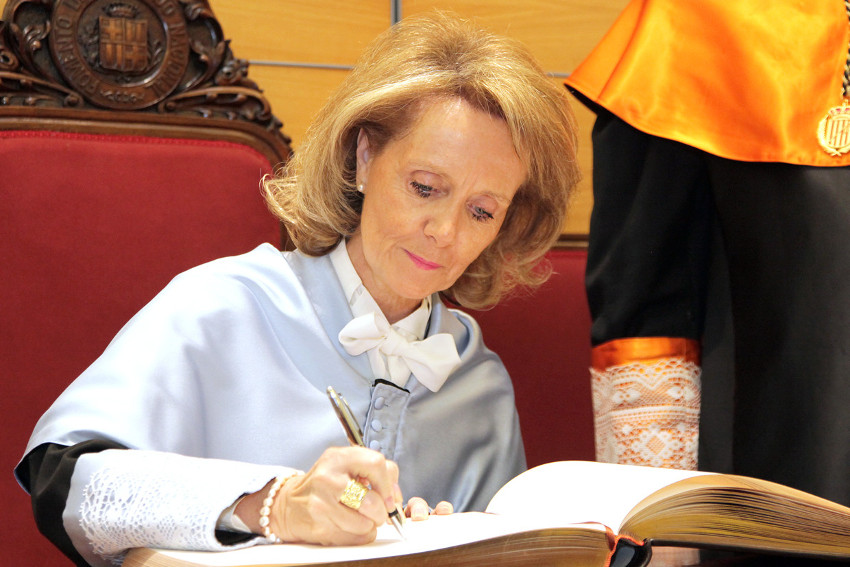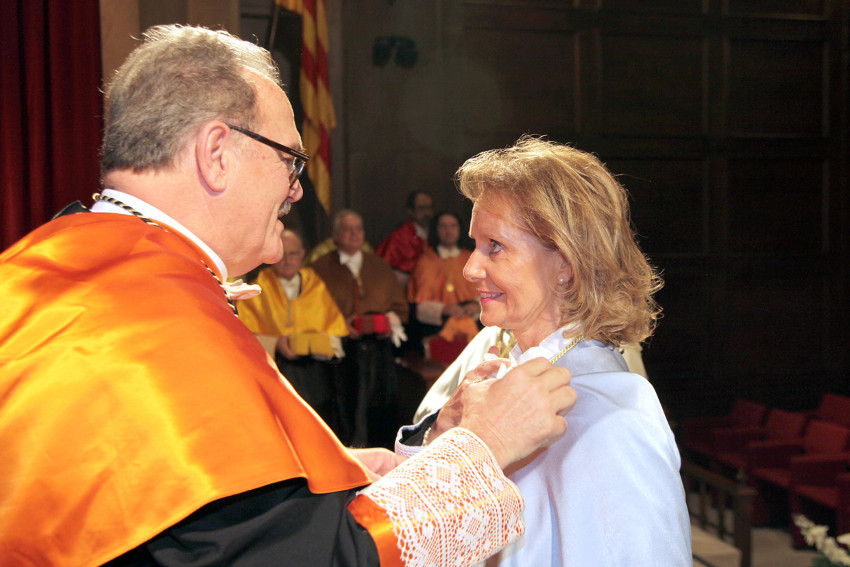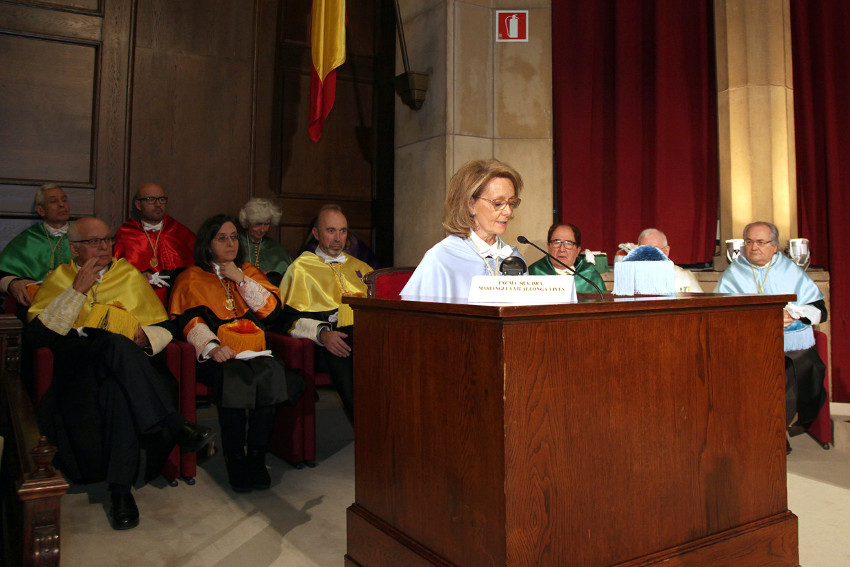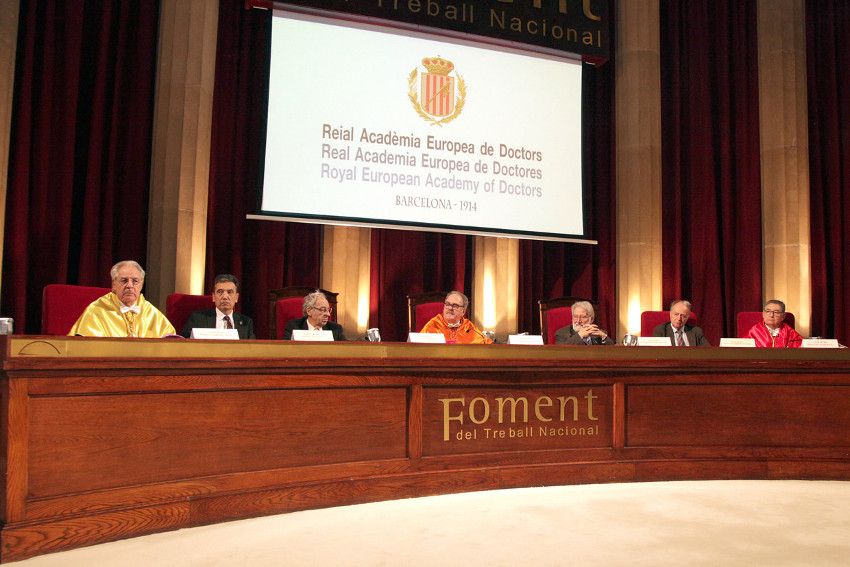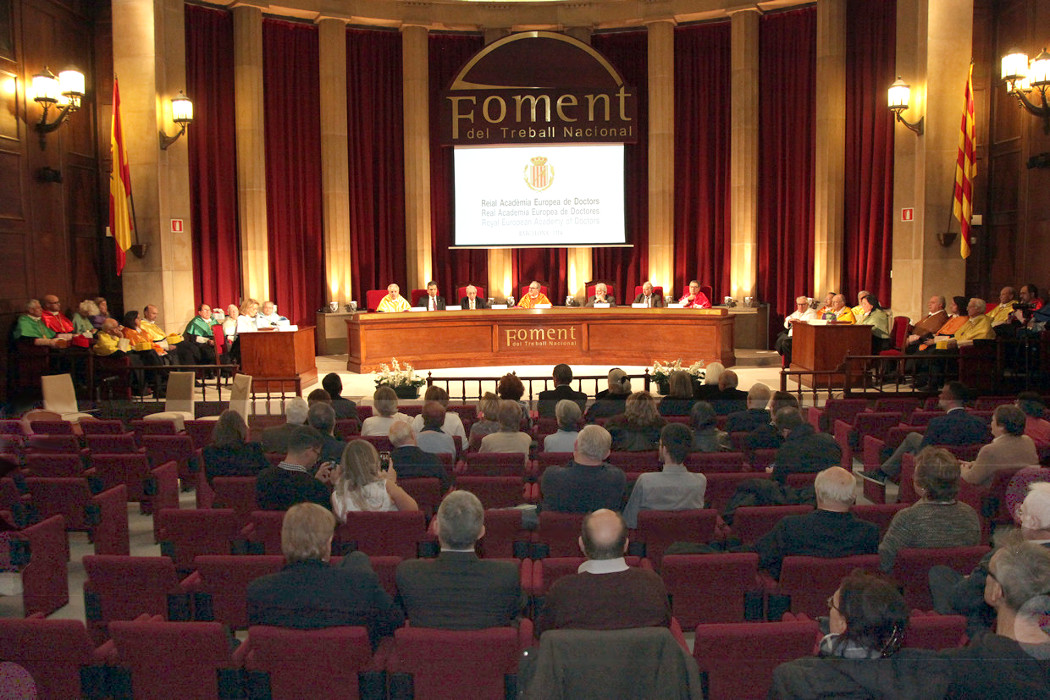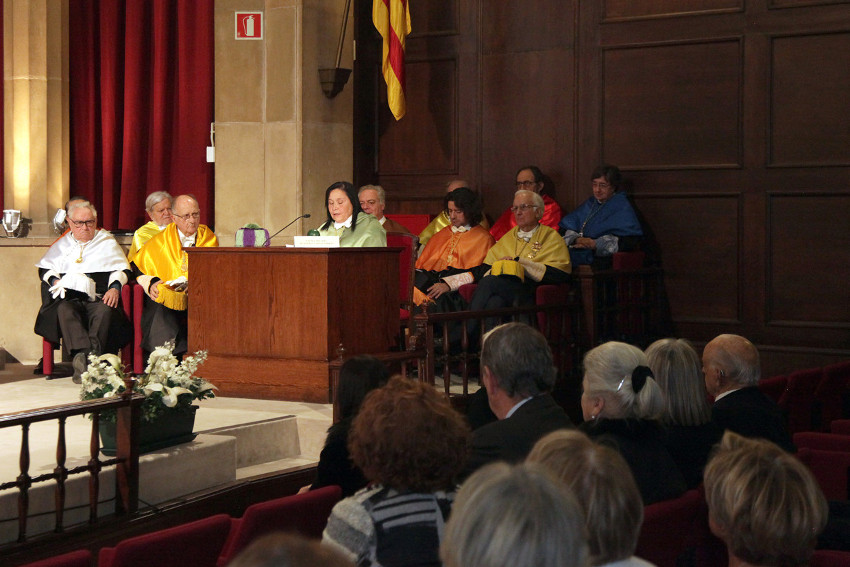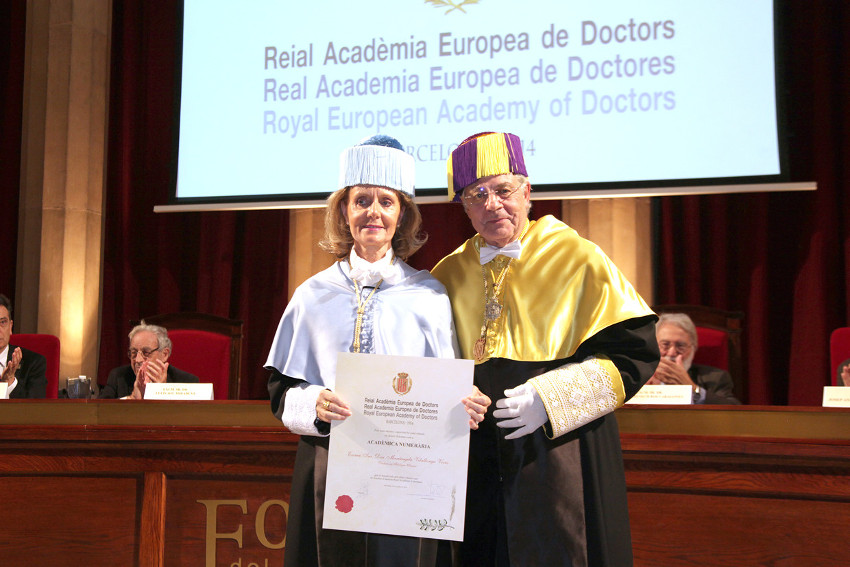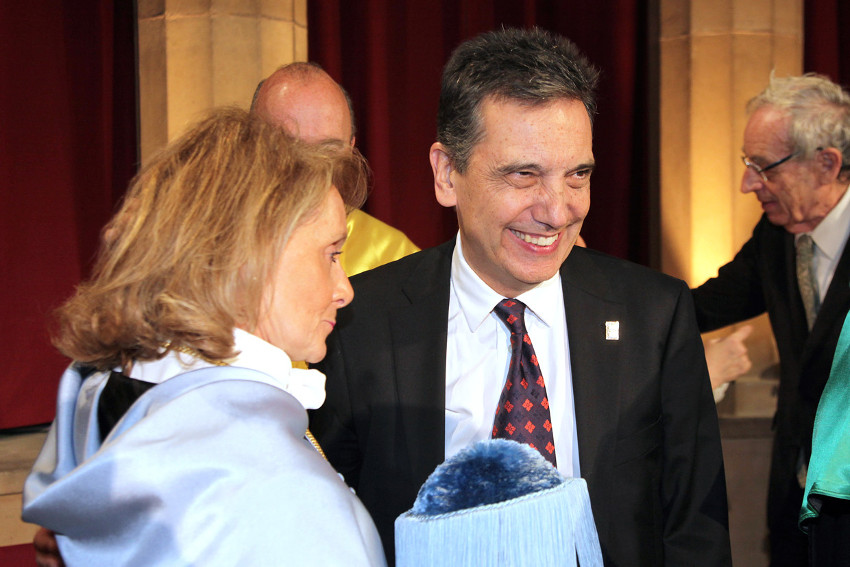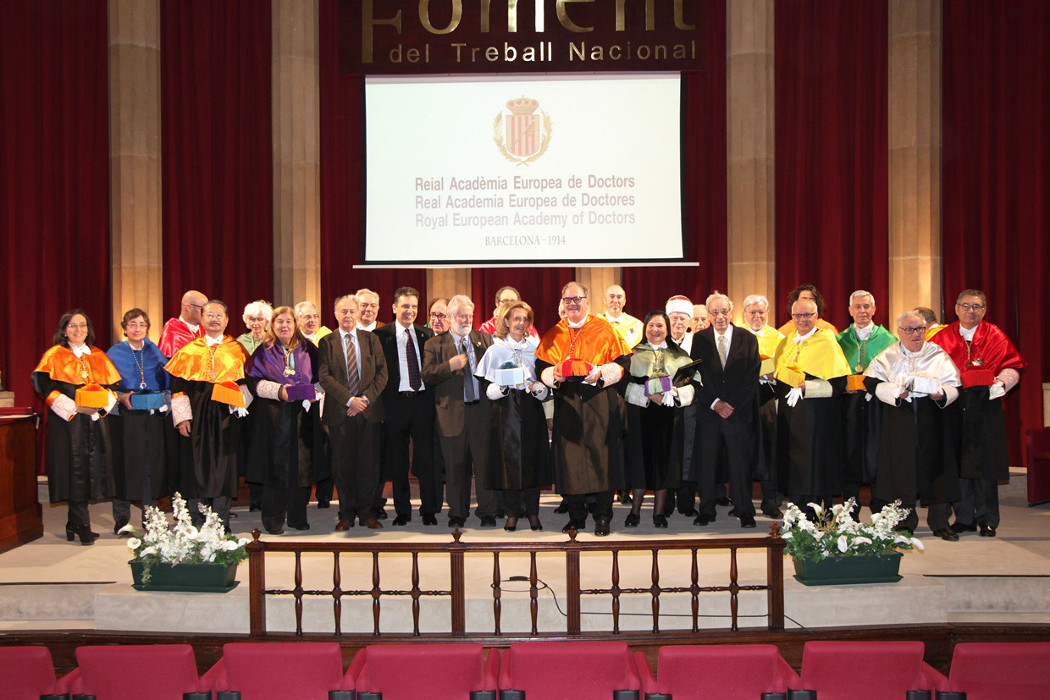Mariàngela Vilallonga, renowned specialist in the reinterpretation of the classical tradition in Catalan culture, enters the Royal Academy
Mariàngela Vilallonga, doctor in Classical Philology and director of the Chair of Literary Heritage Maria Àngels Anglada-Carles Fages de Climent of the University of Girona, entered as full academician of the Royal European Academy of Doctors-Barcelona 1914 (RAED) during a ceremony which was held on October 30 in the Assembly Hall for the employer Promotion of National Labour. The recipient read the admission speech “Novecentismo, vanguardismo y modelo de país: la centralidad de la cultura” (Noucentisme, the avant-garde and country model: the centrality of culture). The full academician Maria Àngels Calvo answered on behalf of the Royal Corporation. The act was headed by the president of the Governing Board of the RAED, Alfredo Rocafort; the president of the Institute of Catalan Studies, Joandomènec Ros; the president of the Royal Academy of Medicine of Catalonia, Josep Antoni Bombí, and the president of the Academy of Veterinary Sciences of Catalonia, Josep Llupià. The former president of the Institute of Catalan Studies Salvador Giner was another prominent personality.
Professor in Latin Philology, the new academician reflected in her presentation on the construction of a cultural, social and political movement based on classical culture. “Noucentisme is one of the movements that has left a deeper footprint in today’s Catalan society, which has forged us as a people, for the desire of a collective that had the ability to convince its generation and make it move forward. That we live, with all its lights and shadows, is the heir of that Noucentista project, in politics, in society and in culture”, said Vilallonga.
The new academician reviewed the entire Noucentista cultural project, focusing specifically on two events that far exceeded the cultural sphere: the creation of the Institute of Catalan Studies by Enric Prat de la Riba and the Bernat Metge Foundation, promoted by Francesc Cambó. Two successful and still existing cultural projects framed within a short-term political project. “The tradition and translation of the Latin and Greek classics as modelers of a country discourse have also been the object of reflection and study, because of the link it represented between both cultural projects”, said Vilallonga.
The student also addressed in her work the heritage of Modernism, the influence of the avant-garde in this period and before this project of cultural and national construction and the response offered to this institutional culture through the so-called “Yellow Manifesto” Salvador Dalí, Lluís Montanyà and Sebastià Gasch.

